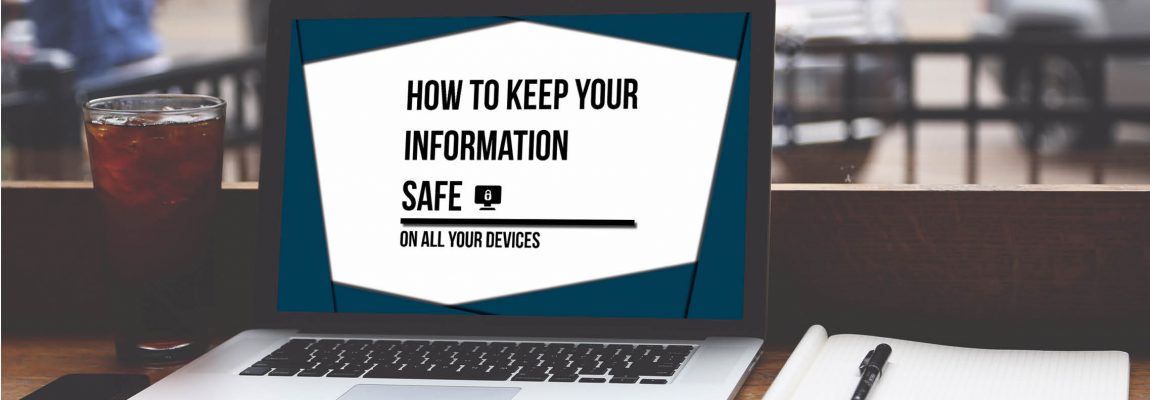More and more people nowadays are being defrauded. Cifas said that more than 80% of identity theft in the first three months of 2015 was attempted or perpetrated online. A lot of fraud and identity theft happens because people’s personal information is easily accessible. Here are our 6 top tips on how keep your information safe.
Social media
Social media is great, it allows you to keep up to date with friends and family across the world. But what people don’t realise is how much personal information is held on social channels like Facebook, Twitter and LinkedIn. That’s why it’s always important to have the highest level of security set. It’s also very important to think about what you are posting; some people can post very sensitive information about themselves without thinking about it.
Secure websites
When shopping online, it’s always important to make sure that you are purchasing from a trusted site. The last thing you want to do is give all your personal information and payment information to an unsecured website, just to save a few pounds.
Here are a few points to look for when internet shopping:
HTTPS
HTTPS Stands for Hypertext Transfer Protocol Secure. This shows that data (information) transmitted between client(You) and server (Website) is encrypted and secured.
Padlock Symbol
The Padlock shows what the HTTPS already tells you, the data sent through the website is encrypted and secure.
Company name in address bar
Companies tend to be more trust worthy if they use the companies name in their web address. But note some trusted companies don’t use their name in their web address. For example, B&Q Use www.diy.com, this is because you can’t use symbols in a web address.
Site seals
There are loads of different site seals out there. Site seals show customers that a website is safe and secure. Norton and McAfee are two of the most common and trusted Site Seals.
Strong passwords and passcodes
It’s very important to make sure that you use strong passwords for all your online accounts. Its best to use a combination of upper and lower case letters, numbers and if allowed symbols. It’s always best to avoid using your name, date of birth, Sports names, Animal names, Pet’s names and common words related to login. The word “Password” is the most used password, this might make it easier to login to your accounts but also makes it easier for hackers to steal your information.
It’s advised to never use the same password for multiple accounts. And it’s also a good idea to change your passwords every couple of months.
Another important security factor is Passcodes on smartphones and other devices. It’s very worrying how many people do not have a passcodes set on their phone, phones nowadays hold so much personal information like name, numbers, addresses, email addresses, tickets and bank details. If your phone gets lost or stolen and you don’t have a passcode all this information is easily accessible.
Don’t store Personal information
Following on from the last point, try to avoid storing personal/ sensitive information on your computer or devices. It may save time when purchasing items on the internet, but just think what would happen if your computer or device ended up in the wrong hands?
Lost or stolen
If you do keep personal/ sensitive information on your phone or tablet, then its best to have a “find my phone” feature set up. For iPhones, iPads and Macs, apple have a feature that allows you to track, lock and even erase your device if you think its lost or stolen. Android devices have a similar feature which is called “Android Device Manager”. To find out more about these features click here for apple and click here for android.
Keep it up to date
It might be a pain every time you go to shut down your computer that it has to install several updates, and your phone keeps reminding you every evening to update. But these updates happen so that your computer or device runs as quickly as it can, without any problems. Sometimes big updates add new features to your device. But the main reason why these updates are made, are to improve security. These updates stop hackers from stealing your information from your devices.
Antivirus software
Antivirus software is a must have on any device. Antivirus software’s protect your computer from computer viruses, they also prevent people trying to hack in to your computer. Some Antivirus software scans the internet, letting you know if the web pages you are visiting are safe.
It’s also strongly advised to install an Antivirus software on your phone and tablet. McAFee include free use of their antivirus app for phones and tablets when you purchase their Antivirus software for computers.
Those are our 6 top tips on how keep your information safe when using all your devices. Points to remember:
- Limit what information you put on your social media profiles
- Make sure you only use secure websites (look out for a site seal)
- Use strong passwords and have passcodes set up on all your devices
- Avoid having personal information saved on your computers and devices
- Have a “find my phone” feature set up to track your device if lost or stolen
- Keep your devices up to date
- Make sure you have Antivirus software installed on all computer and devices
